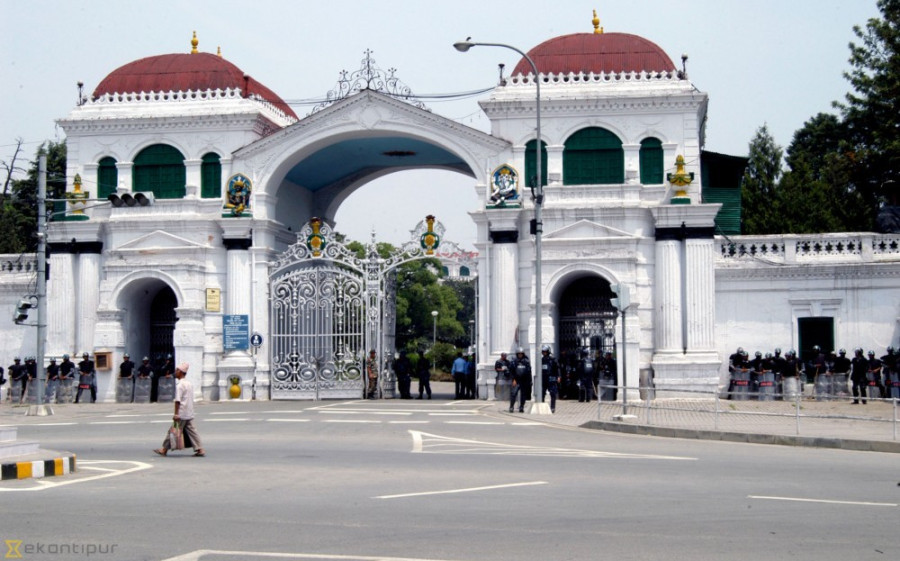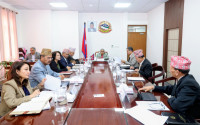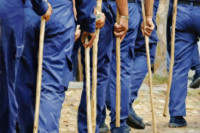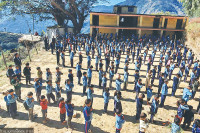National
Government’s apathy renders constitutional commissions ineffective
Dalit, Tharu, Muslim, Madhesi and Inclusion commissions not a priority right now, an aide to prime minister says
Tika R Pradhan
The new constitution promulgated in September 2015 envisioned formation of as many as seven commissions to ensure the rights of the marginalised and underprivileged communities.
Four years later, Chief Justice Cholendra Shumsher Rana, on March 21, finally administered the oath of office to five chairpersons of the commissions.
But with no members, no human resources and no necessary infrastructure, these commissions have largely remained nonfunctional.
National Women’s Commission and National Dalit Commission, which were made constitutional bodies through the new constitution, along with the National Adibasi Janajati Commission, are still without office bearers.
The four commissions to which chairpersons were recently appointed—Madhesi; Muslim; Tharu; and Inclusion commissions—are still without members. The government appointed a member for the Inclusion Commission only recently.
Giriraj Gnawali, an under-secretary at the National Dalit Commission, said office bearers are yet to be appointed while a handful of employees have been running the office, where at least 30 staff are required, for the last seven months.
“We have not been able to continue the works the previous commission had been doing, as there are no office bearers,” said Gnawali.
These specific constitutional commissions were created with the mandate to receive complaints and to look into the cases of rights violations in the respective communities. These commissions are also mandated to identify areas of necessary policy, legal and
institutional reforms and make recommendations to the government.
Officials at the commissions said the government’s apathy towards them is very concerning.
“I am struggling alone,” said Samim Miya Ansari, chairperson of the Muslim Commission. “The commission has not been able to perform effectively. We are yet to get members.”
Each of these commissions needs four members.
Officials said the commissions do not have proper office spaces to operate.
The Dalit Commission and Muslim Commission have been sharing five rooms each in the two flats of the Women’s Training Centre on the premises of the Local Level Training Academy at Jawalakhel.
The Madhesi Commission is housed in a residential building near UN Park and the Tharu Commission in Anamnagar.
Even though the government has approved 31 positions, the Tharu Commission has just 19 employees.
“We cannot accommodate all office-bearers in this office,” said Bishnu Chaudhary, chairperson of the commission.
Rights activists say the conflict over sharing of positions among the parties and groups within them is the reason behind the delay in appointing members to the commissions.
Govinda Chhantyal, vice-chairman of the Nepal Federation of Indigenous Nationalities, an umbrella organisation of the country’s indigenous nationalities, said the delay in appointing members to the commissions reflects the mindset of those in power.
“People in power are still continuing with the same old thinking, mentality and practices,” Chhantyal told the Post.
Many including lawmakers from the ruling party believe that the government has failed to abide by the spirit of the constitution.
“Inclusiveness and proportional representation make our constitution look progressive, but those in power have failed to practise the constitutional provisions in letter and spirit,” said Anjana Bishankhe, a rights activist and lawmaker from the Nepal Communist Party (NCP). “People in the government are trying to make constitutional provisions inactive. The reluctance to empower commissions is part of that bid.”
Government officials concede that filling the positions in the commissions is not a priority.
“The government currently is more focused on commissions related to the peace process,” said Kundan Aryal, press adviser to Prime Minister KP Sharma Oli, referring to the appointments pending in the transitional justice commissions. “Other commissions are not a priority. The prime minister is also busy with party-related works.”




 9.91°C Kathmandu
9.91°C Kathmandu














